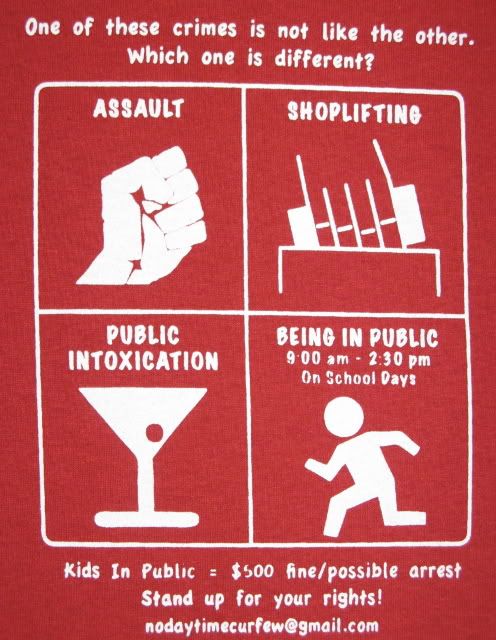"Experience should teach us to be most on our guard to protect liberty when the Government's purposes are beneficent. [Persons] born to freedom are naturally alert to repel invasion of their liberty by evil-minded rulers. The greatest dangers to liberty lurk in insidious encroachment by men of zeal, well-meaning but without understanding."
(Justice Louis Brandeis, Olmstead vs US, 1927)
(Justice Louis Brandeis, Olmstead vs US, 1927)
Good intentions are not bad, in and of themselves; but, the means by which those intentions are accomplished can often have very unpredictable, unfavorable results which might not manifest until much later - when those original intentions are long forgotten.
As I mentioned in a previous post, I truly believe that the Bedford and Euless City Councils had good intentions when they sought to help the HEB school district with its purported truancy problem by enacting a juvenile daytime curfew at the district's request.
When the home school community spoke out against the daytime curfew, the police chiefs in both Bedford and Euless assured its citizens that it was not their intent to target home schoolers with the ordinance.
I sincerely believe them. But the councils and police chiefs simply can't speak for those who will take their place in years to come. Who knows how a restrictive ordinance, such as this one, will be interpreted or used 5, 10, or even 20 years from now?
A common phrase parroted by the police chiefs and councils is: we don't foresee a homeschool family being the target of this ordinance. We've also heard the argument that our police chief runs a tight ship and that city officials have complete faith that our officers are able to determine a real truant from a home school child.
We don't forsee.... We don't intend.... Those words are nothing more than a verbal handshake. The truth is, no matter how well-intentioned a council may be, and no matter how well-trained a police force is, there will always be mistakes. Police officers are human, and it is only reasonable to assume that an individual officer might make a human error on any given day.
There is evidence of this happening all across the state, where home schoolers have been harassed by police officers simply because they were out in public during curfew hours, even though no actual crime was being committed. And the fact that "home schooling" was among the list of defenses didn't make an ounce of difference.
I'm positive that those councils and police chiefs never intended for those unfortunate situations to happen...but when it comes right down to it, they simply have no say in how those situations involving otherwise innocent families will play out in court. Intentions are not guarantees.
The intentions of the city councils or their respective police chiefs will most likely be lost and forgotten in time. But their legacy will remain: an ordinance on the books that makes it illegal for any minor 17 years old or younger to be out in public during school hours. And the list of "defenses" will be essentially meaningless for those innocent families without the resources to defend themselves in court. When you go to court, you are automatically presumed guilty. What will it take to prove your innocence?
The law that the councils intend to use as a "strong deterrant" today, could be strictly enforced tomorrow depending on the interpretation of the city leadership to come. The letter of the law will likely prevail if the original intent cannot be established.
Ever heard of function creep? This is what occurs when an item, procedure, or process designed for a specific purpose ends up, over time, being used to serve another purpose for which it was never intended.
Case in point: the Social Security Number. Back in 1936, the stated purpose of the social security number was to facilitate record-keeping so that the proper amount of Social Security taxes were credited to a contributor's account. The government assured the public that Social Security Numbers were never intended to be used for identification purposes. In fact, each card bore the inscription, "Not for identification."
By 1961, the IRS began using Social Security Numbers for tax identification purposes. By 2002, many transactions from credit, to employment, to insurance required Social Security Numbers before they could be validated. Today, Social Security Numbers are mandatory identification, and are valued so much that criminals try to gain access to them: we call it identity theft.
What I want to emphasize is this: To have a law on the books that is broader in scope than what is necessary to address the problem at hand is simply unwise. Particularly in the case of truancy, when there are already state laws on the books to handle those specific situations.
Citizens need to speak up and use their voting power as a strong deterrant to unseat zealous leaders who don't see freedoms and civil rights as something worth defending.





No comments:
Post a Comment